Peak District: Marking 70 years of the UK's first national park
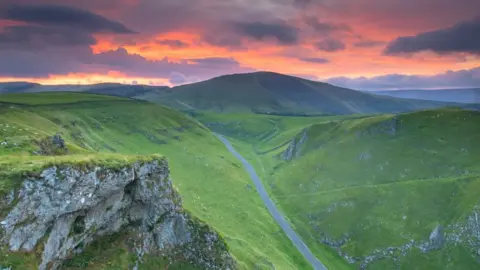 Luke Healy
Luke HealyRamblers, climbers, cyclists and, of course, photographers - the Peak District National Park has been attracting visitors for 70 years, ever since its designation in 1951 as the UK's first national park. But what are the stories that lie behind the views of sweeping valleys and sheer, rugged heights? BBC News Online meets people who turn to the park in their times of need.
Diane Burrows says Chatsworth is her "sanctuary".
She first "fell in love" with the house and gardens on a school trip when she was just 10 years old.
"I remember going in the house and in one of the bedrooms there's a Stradivarius - a violin - painted as though you could just pick it up and play it," said the 63-year-old, who lives in Bramcote, Nottinghamshire.
"That image has stuck with me. There was something about the place even then."
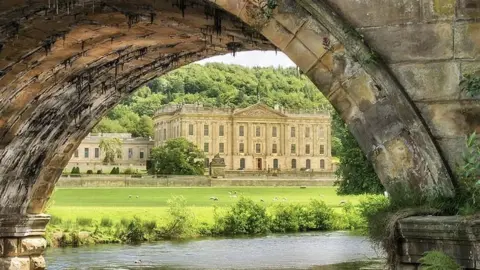 @wes84k
@wes84kFifty-three years later - married and with four grown-up children - she said Chatsworth has become a place she visits whenever there is any significant family milestone or event.
"There's something about Chatsworth that is so evocative.
"We can sit on the grass with our flask of hot chocolate or we can walk with the house in view.
"It just restores us and renews us and we feel refreshed," she said.
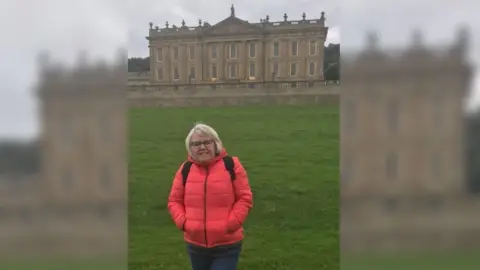 Diane Burrows
Diane BurrowsA key memory for Mrs Burrows is the time she and her husband visited Chatsworth after dropping their daughter off at university.
She said: "It's over 20 years ago now - Leanne was the first one to go off to uni and we'd taken her as a family to Manchester.
"We took her on the Sunday - my husband had booked the Monday off because we knew we'd be good for nothing - and we planned to go to Chatsworth.
"It was a September day and it was glorious.
"There was something about the atmosphere of the place that kind of put something back. It was restorative."

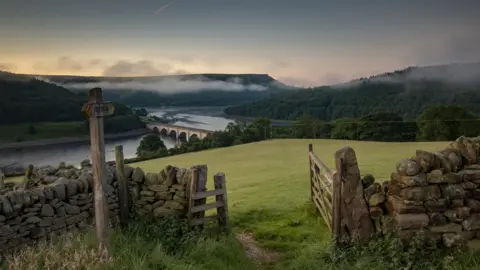 James Lowery
James LoweryJames Lowery, 28, is from Sheffield but, despite living close to the Peak District, he only began visiting regularly two years ago.
"I suffer with anxiety and depression and, one day, I just thought to myself I'm going to buy a camera [and photograph the national park]," he said.
 James Lowery
James LoweryCapturing the Peak District's ever-changing vistas has since become a means to help him manage his mental health.
"The only way I can describe it really is it makes me feel somewhat normal.
"It clears my head from everything I've got going on with my anxiety.
"I don't really think much when I'm there, which is a good thing," he said.
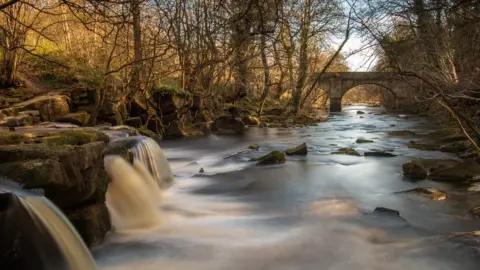 James Lowery
James LoweryMr Lowery said the Peak District is the perfect place to capture the natural style of photography he has "come to know and love".
His favourite place to take pictures is Ladybower Reservoir.
"I enjoy spending hours searching for a new spot to take a picture or exploring around the River Derwent, watching the birds and other wildlife," he said.
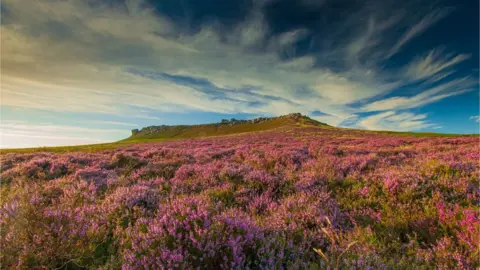 James Lowery
James Lowery
Amy McDonald, 33, a photographer from Derby, has been going regularly to the Peak District since 2014.
She said the spot known as Surprise View holds a special place in her heart.
"From Derby, it's about an hour's drive - you have loads of different routes that you can pick from and you wouldn't expect the view you get.
"On a clear day, there are full 360 views featuring Mam Tor, Castleton, Higger Tor and Stanage Edge, to name a few.
"The reason I like it so much is, because no matter what season you go up, it looks different every single time," she said.
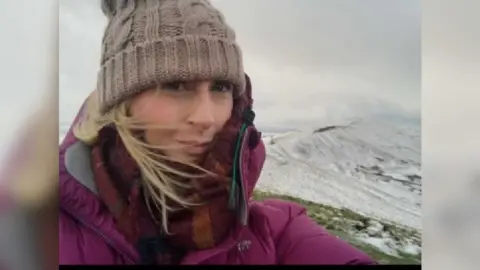 Amy McDonald
Amy McDonaldIt's a place she has found especially therapeutic at times during 2020 when Covid restrictions eased.
She said the pandemic made her feel like she had had her "wings clipped".
"You're out in the fresh air with nothingness and it's just refreshing, rather than being amongst the hustle and bustle of the town centre or on the road or in a supermarket surrounded by a million people.
"It's just taking yourself away from what you do daily to enjoy what is on your doorstep and what is just naturally amazing," she said.
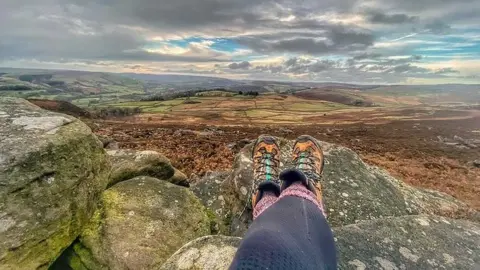 Amy McDonald
Amy McDonald
Zoe Cutter, 39, enjoys hiking in the Peak District and said a trip there "always feels like a mini holiday".
"Even though I've been going for 16 years, I'm always discovering new places.
"There are so many places that I've not yet seen that are really just on my doorstep.
"You don't need to go to the other side of the world to discover somewhere new," she said.
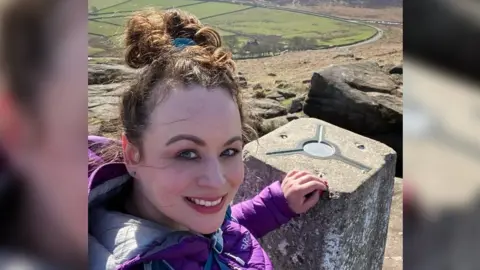 Zoe Cutter
Zoe CutterShe was introduced to the national park by a colleague and friend.
"We found it helpful for de-stressing," she said.
She believes it to be "one of the most outstanding beauty spots in the country".
"My favourite recent memory was just enjoying a peaceful moment sat on the top of Derwent Valley, looking out at the scenery," she said.
Ms Cutter lives in a flat in Nottingham without its own garden.
She said the national park has been a "godsend" during the pandemic, at those times when travelling has been allowed.
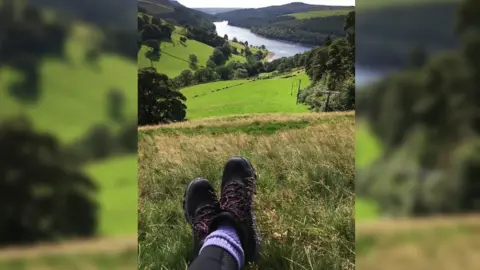 Zoe Cutter
Zoe Cutter
The Peak District's rugged countryside - situated between Derbyshire, Cheshire, Staffordshire, Yorkshire and Greater Manchester - attracts more than 13 million people each year.
Paul Elliott, a professor of modern history at the University of Derby, said the 70th anniversary is an opportunity to reflect on the success of the park and its relevance during a time of crisis.
"It's interesting the parks were kind of a way to revitalise the country after World War Two.
"Although we haven't had a global war we're sort of in a parallel situation - it's national parks that are going to help us get out of the situation we're in now," he said.
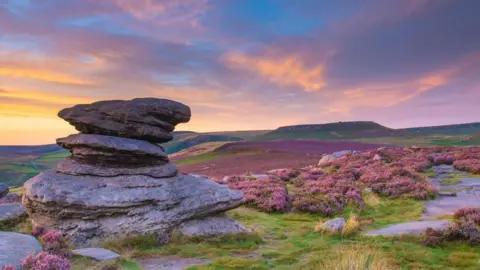 Luke Healy
Luke HealyThe park's chief executive Sarah Fowler said: "The Peak District National Park has been here for 70 years, inspiring the lives of thousands of residents and millions of visitors.
"Whilst no-one could have anticipated the global circumstances in which we find ourselves looking forward to this remarkable milestone, it is perhaps holding a mirror to the Peak District's ground-breaking early years as people sought sanctuary within the open spaces that contrasted with our daily and urban lives - just as we are now."

Follow BBC East Midlands on Facebook, Twitter, or Instagram. Send your story ideas to [email protected].
